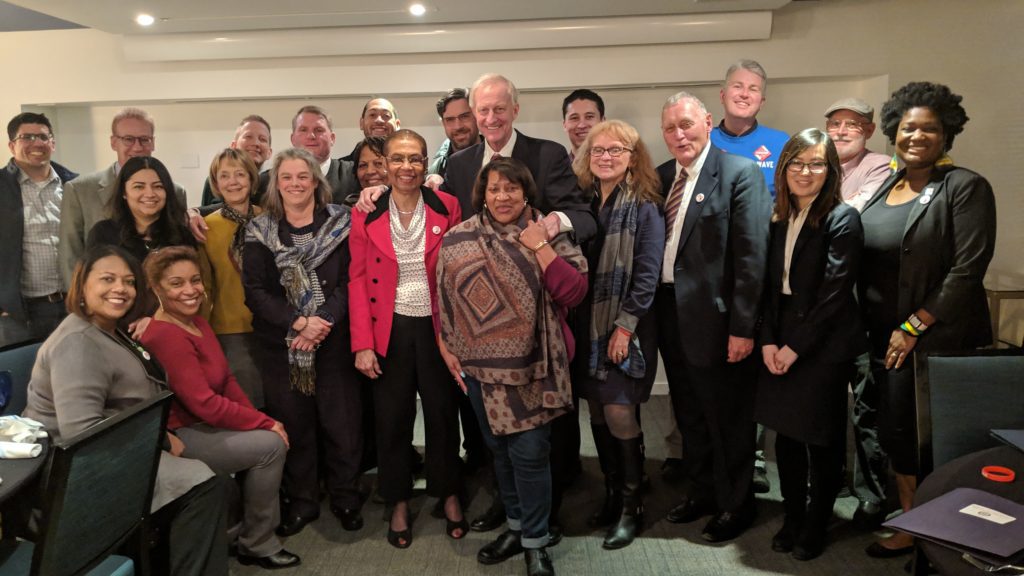Del. Norton Cites D.C. Statehood Progress
By • February 25, 2019 0 1052

The two dozen or so Georgetown and West End Democratic activists were calm, cordial, almost happily optimistic on Feb. 21 as they munched appetizers and reacted to reports on the state of the District by Jack Evans and Eleanor Holmes Norton at the Avenue Suites hotel at 2500 Pennsylvania Ave. NW.
Evans is the longest serving Council member in D.C. history. Norton is starting her 15th term as a delegate to the U.S. House of Representatives.
Along with delegates from the territories of American Samoa, Guam, Mariana Islands, Puerto Rico and the Virgin Islands, Norton has full voting rights on the congressional committees of which she is an official member. She can introduce legislation and even chair subcommittees.
But delegates do not have the right to vote in the House chamber, since their jurisdictions are not states. And Congress still has a constitutionally mandated jurisdiction over many of the District’s affairs, since it is the “Seat of the Government of the United States” (U.S. Constitution, Article I, Section 8, Clause 17). The Home Rule Act of 1973 established the Council, which has much but not total local control.
For Norton, gaining full state status for (most of) the geographic area of the District is crucially important. The Constitution’s only geographic restriction about the District is that it “not exceed ten miles square.” For years, D.C.’s statehood movement has suggested that only the clusters of federal buildings, such as Capitol Hill, the National Mall and the White House area, be considered the federal district. All of the eight hometown wards could become the 51st state of the United States, represented by two senators and one representative.
“There has been a lot of progress already towards statehood, now that the Democrats have taken back the majority of the Congress,” said Norton. She has introduced H.R.51, the Washington, D.C. Admission Act, and obtained a record 155 original cosponsors. “That’s more than the number of Democrats who voted for the first-ever floor vote on statehood in 1993,” she said.
“Even more, Speaker Nancy Pelosi has made strong public statements in support of the bill,” Norton pointed out. “It’s the most important step yet in getting a House floor vote on statehood.”
Of course, the bill would then have to be passed by the Republican-majority Senate and signed by President Trump. All that is unlikely in the highly partisan atmosphere of today, since D.C. votes almost entirely Democratic. Only four percent of the population voted for Trump in 2016 and there were fewer than five Republicans on the D.C. ballot for any office.
Recently, Washington Post editor Charles Lane proposed providing full congressional representation to D.C.’s 700,000-plus residents by placing its eight city wards in a new congressional district in Maryland called “Douglas County” (get it? — D.C.). The concept was pooh-poohed by Norton. “Old idea,” she said. “Would never be accepted by residents here. We want our own state.”
Meanwhile, Norton emphasized, “The selection of the committees I sit on is crucial to my being able to introduce and push legislation of interest to D.C. through Congress.” Currently, Norton is a full member of the House Committee on Oversight and Reform and the House Committee on Transportation and Infrastructure. She credits the latter with having pushed through the entire Wharf development project — “which next to statehood for D.C. was the most complicated and hardest thing I’ve ever done,” she commented during the opening of phase one of the Wharf in the fall of 2017.

